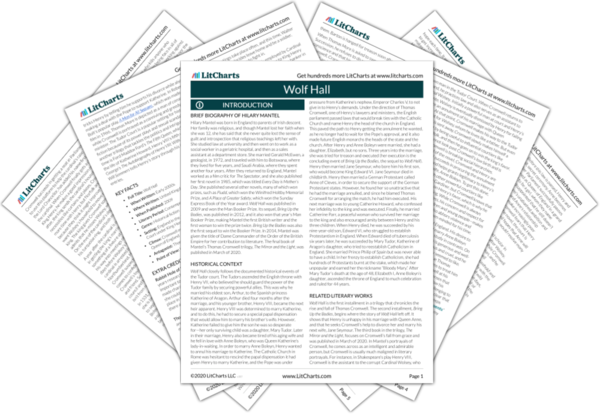Cromwell rightly assumes that More will have their entire conversation printed and publicized, and that he will go down in history as a victim while he makes Cromwell and his allies look bad. Indeed, Thomas More is generally viewed as being a hero and a victim—through historical representations and through fiction like the play
A Man for All Seasons—while Cromwell is often seen as a merciless crook. Mantel seems to be commenting on how narratives like these become popularized, and she adds her own dissonant portrayal to these existing stories, emphasizing that no history is ever objective.
